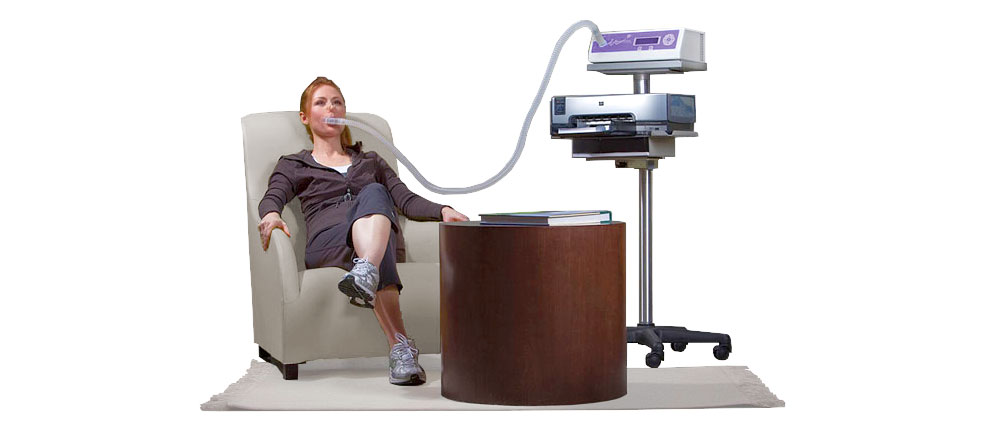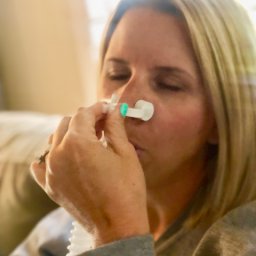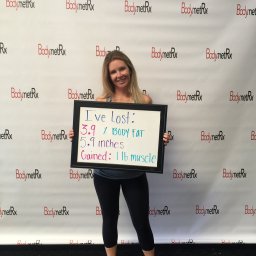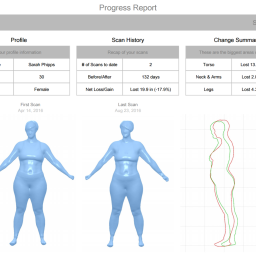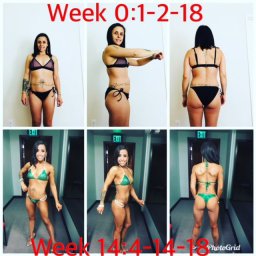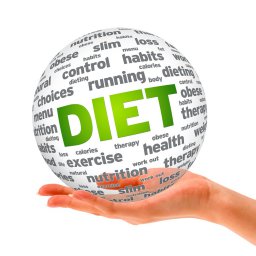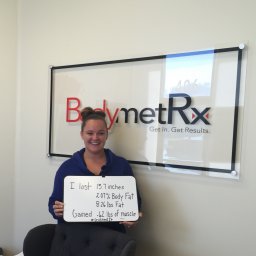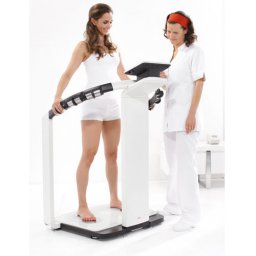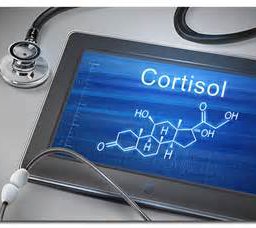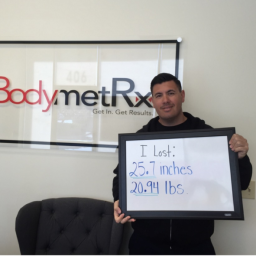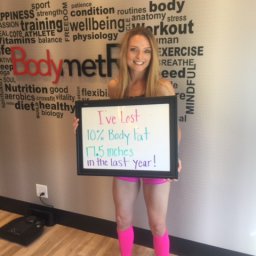What is it?
Your resting metabolic rate is the amount of calories you burn at rest. If you’ve ever wondered if you have a slow or fast metabolism, this analysis will tell you. There’s no more guessing or using generic online calculators. In an examination of published articles looking at the validity of various predictive equations such as Frankenfield, Roth-Yousey, Mifflin-St Jeor and Camphor was off by up to 10% of measured results. This variance could lead to an individual gaining up to 21 pounds a year! We will tell you how many calories your body needs to loose, gain or maintain your weight. This measurement is specific to every individual and should tested every 3-4 months. Your caloric intake will change as your body changes through diet and exercise. People will often hit a wall with weight loss and this is the piece of information that needs to be addressed in order to push through this hurdle. Another reason people will hit a wall when it comes to weight loss can also result from them gaining muscle weight. This can be determined by a simple Bod Pod Test. These technologies were once only reserved for Hospitals and Universities but they are now available to residents of Southern California. Body MetRx will bring these tests and more to your door.
How is an RMR tested?
The RMR is a simple breath test conducted while you are sitting or laying comfortably. You must make a tight seal with your lips around the mouthpiece and plug your nose with the padded nose clip provided. The test lasts approximately 10-15minutes. The more relaxed and consistent your breathing is, the quicker your breath can be analyzed. In just ten minutes, you will know precisely how many calories your body burns. No more being compared to charts and averages, no more wondering why your diet is not working. The Cardiocoach will take the guess work out of dieting and put YOU back in control! Comfortable, effective and life-long weight loss is just a breath away!
The unit measures the concentration of oxygen breathed out by each person. Because there is a direct correlation between oxygen consumed and calories burned (4.813 calories for every milliliter of oxygen consumed), an accurate measurement of oxygen consumption is an effective measurement of calorie consumption.
Like many of our tests, there are special guidelines to follow prior to testing. Following this protocol will ensure the most accurate RMR measurement:
- Do not eat or drink 4 hours prior to testing
- Do not exercise 4 hours prior to testing (cardio or strength training)
Frequently Asked Questions:
Why should I have my resting metabolic rate tested?
Everyone has a unique metabolic rate. Scientific studies show that even people with similar attributes like age, height, weight, and body composition can have very different metabolic rates. This means that if your metabolic rate is lower than average, you may gain weight even while dieting. Conversely, if your metabolic rate is higher than normal, you may never need to diet to lose weight or you may not be eating enough to lose weight! Metabolic testing reveals how many calories your body burns at rest, giving you the data you need to plan a weight loss, gain, or maintenance plan.
Does metabolism change over time?
Metabolism varies from person to person and can change over time. It is determined by many factors including body composition (amount of muscle and fat), weight, age, genetics and gender. Weight loss or a change in body composition can significantly affect your resting metabolic rate (RMR).
How can I increase my metabolic rate?
One of the greatest factors that determines your metabolic rate is genetics, which you obviously cannot change, but the amount of lean body mass one has is also a determining factor. People with more muscle tissue usually have a higher metabolic rate. Other factors that can also increase your metabolic rate are adequate sleep, decreased stress, small frequent meals.
I exercise a lot. Why hasn’t my resting metabolic rate increased?
Aerobic, or cardiovascular exercise burns calories during the activity, but does not have a significant effect on increasing your RMR over time. The calories you burn during aerobic exercise will help you balance the calories you eat. Strength training on the other hand burns fewer calories during the exercise, but can add more muscle to your body, which can lead to an increase in resting metabolic rate over time. A combination of aerobic exercise and strength training should be included to improve health.
I have lost weight. Why is my resting metabolic rate lower?
A decrease in resting metabolic rate during weight loss is normal. Metabolism is influenced by total body mass (your body weight). When you lose weight, your total body mass decreases and it takes less energy for your body to maintain vital functions. In order to minimize this decrease in RMR with weight loss, you can participate in a strength training program. Strength training, if vigorous enough to increase lean muscle mass, can help increase your resting metabolic rate over time because muscle is more metabolically active than fat and burns more calories to maintain, even at rest.
Does losing weight speed up my resting metabolism?
You might be surprised to read the answer is no. Your resting metabolic rate (RMR) actually tends to decrease as you lose weight. This happens because it takes less calories for your body to support a smaller you. This is one of the reasons that it is important to have your RMR re-measured as you shed pounds. Otherwise, you might find yourself plateau-ing too soon and not reaching your goals. One way to counter this trend is to add strength training to your workout plan because lean muscle mass burns more calories than fat. Remember to check with your doctor before starting any exercise program.
|
|
|
|
|


